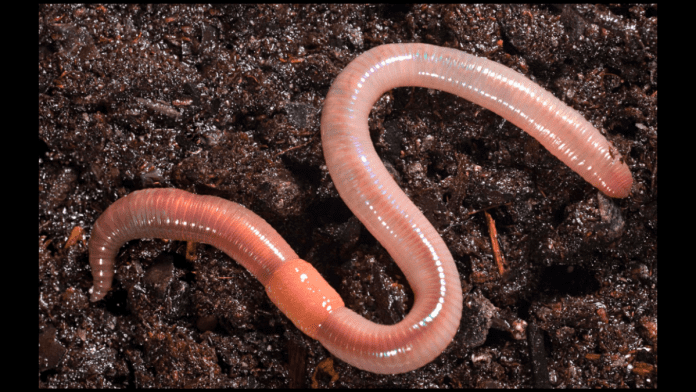News in brief: New research from Colorado State University reveals that earthworms contribute to 6.5% of global grain yield and 2.3% of legume production, potentially accounting for 140 million metric tons of food annually. Their role in soil health, especially in the global south, where fertilisers and pesticides are less accessible, underscores the significance of soil biodiversity for sustainable agriculture.
New research from scientists at Colorado State University claims earthworms contribute to approximately 6.5% of global grain yield. They also contribute 2.3% of legumes produced worldwide each year.
This means that earthworms may account for as much as 140 million metric tons (mmt) of food produced annually. This is roughly equivalent to the amount of cereal grains grown annually by Russia, the world’s fourth-largest producer.
This is reportedly the first study to quantify the global economic value of earthworms, and the results are significant.
Earthworms play a vital role in soil health, and healthy soils are essential for productive agriculture. They help to build soil structure, improve water drainage, and increase nutrient availability for plants. They also help to break down organic matter and release nutrients back into the soil.
The study found that earthworms have a particularly significant impact on crop production in the global south, where farmers tend to have less access to fertiliser and pesticides. In Sub-Saharan Africa, for example, earthworms contribute to 10% of grain yield and 8% in Latin America and the Caribbean.
Lead author of the study, Steven Fonte, who is an associate professor of agroecosystem ecology in the Department of Soil and Crop Sciences at CSU, says that he hopes this work will bring more attention to the importance of soil biodiversity for sustainable agriculture.
He stated that the research highlighted the potential of better harnessing or leveraging of the biodiversity and ‘produce more sustainable agroecosystems’ with more sustainable management of soils.
This study has important implications for the future of agriculture, a news coverage said. By understanding the value of earthworms and other soil organisms, better management practices to promote soil health and boost crop production can be put in place.
This is especially important in the face of climate change, which is putting increasing stress on agricultural systems.



